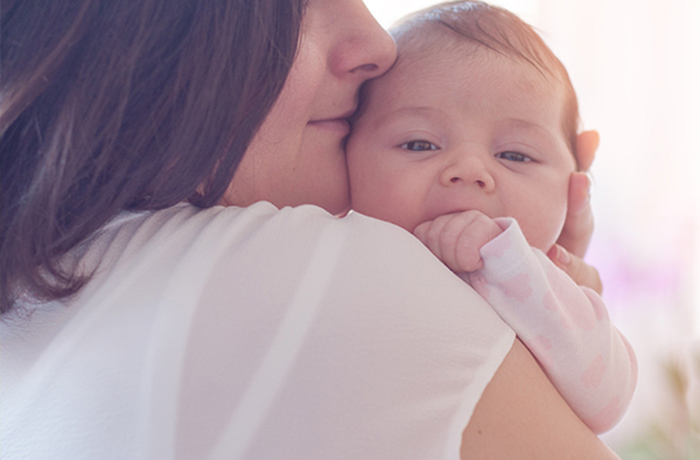
You’re pregnant or recently brought your little one into the world, and your excitement is replaced with sadness, irrational thoughts and anxiety. Fifty to eighty percent of new mom’s experience some unexpected weepiness, mood swings and insecurity.
How do you know if these feelings are normal or something more serious, such as a perinatal mood and anxiety disorder (PMAD)? A PMAD can start anytime in the perinatal period (from the time of conception through a baby’s first year of life). Typically, symptoms last much longer than a few days, aren't relieved by extra rest and care, and disrupt your everyday living.
PMAD symptoms can vary, but some common signs include:
- Feeling very sad, hopeless and empty
- Feeling anxious or losing pleasure in everyday things
- Feeling very nervous around the baby
- Extreme tiredness
- Changes in appetite and weight
- Having difficulty falling or staying asleep
- Becoming easily irritated or angry
- Not being able to concentrate
From shifts in hormones to discomforts from birth to fatigue from lack of sleep, moms will go through a lot of adjustments when learning to live with and care for a newborn. While the physical and emotional changes during and after pregnancy are very real, so are the risks for PMAD. Postpartum depression and anxiety aren’t just “all in your head”—they are serious illnesses like diabetes and heart disease. The good news is, they can be successfully treated.
Types of PMADs
PMADs are the leading complication of pregnancy and childbirth. Women from all walks of life—every culture, race, age, income and education level—can develop a PMAD. Categories for PMADs include:
- Perinatal or postpartum mood disorder
- Perinatal or postpartum anxiety disorder
- Perinatal or postpartum obsessive compulsive disorder (OCD)
- Perinatal or postpartum psychosis in rare cases, which needs immediate intervention
Recovery is Possible
Mental health conditions during pregnancy or after childbirth are normal and not a sign of weakness. If you think you may be suffering from a PMAD, reaching out to a health care provider is the first step toward health and happiness.
The Importance of Self-Care
Along with seeking professional support, taking good care of yourself can also help you feel better and get the most out of motherhood. Postpartum care should include:
- Plenty of rest. It can be difficult to sleep after your baby’s arrival, but ask for help from your partner, family or friends, so you can catch up on your z’s.
- Controlling any pain you have with prescription or over-the-counter (OTC) medications.
- Controlling any pain you have with prescription or over-the-counter (OTC) medications.
- Eating a healthy, well-balanced diet.
- Indulging in some “me time”; e.g., taking a bath, reading a book, meditating or journaling.
- Sharing your feelings with loved ones.
Holland Hospital Behavioral Health Services delivers comprehensive, compassionate and confidential mental health care for people of all ages, including treatment for postpartum depression and mood disorders. Call (616) 394-3702 or (616) 355-3926 for information and care.